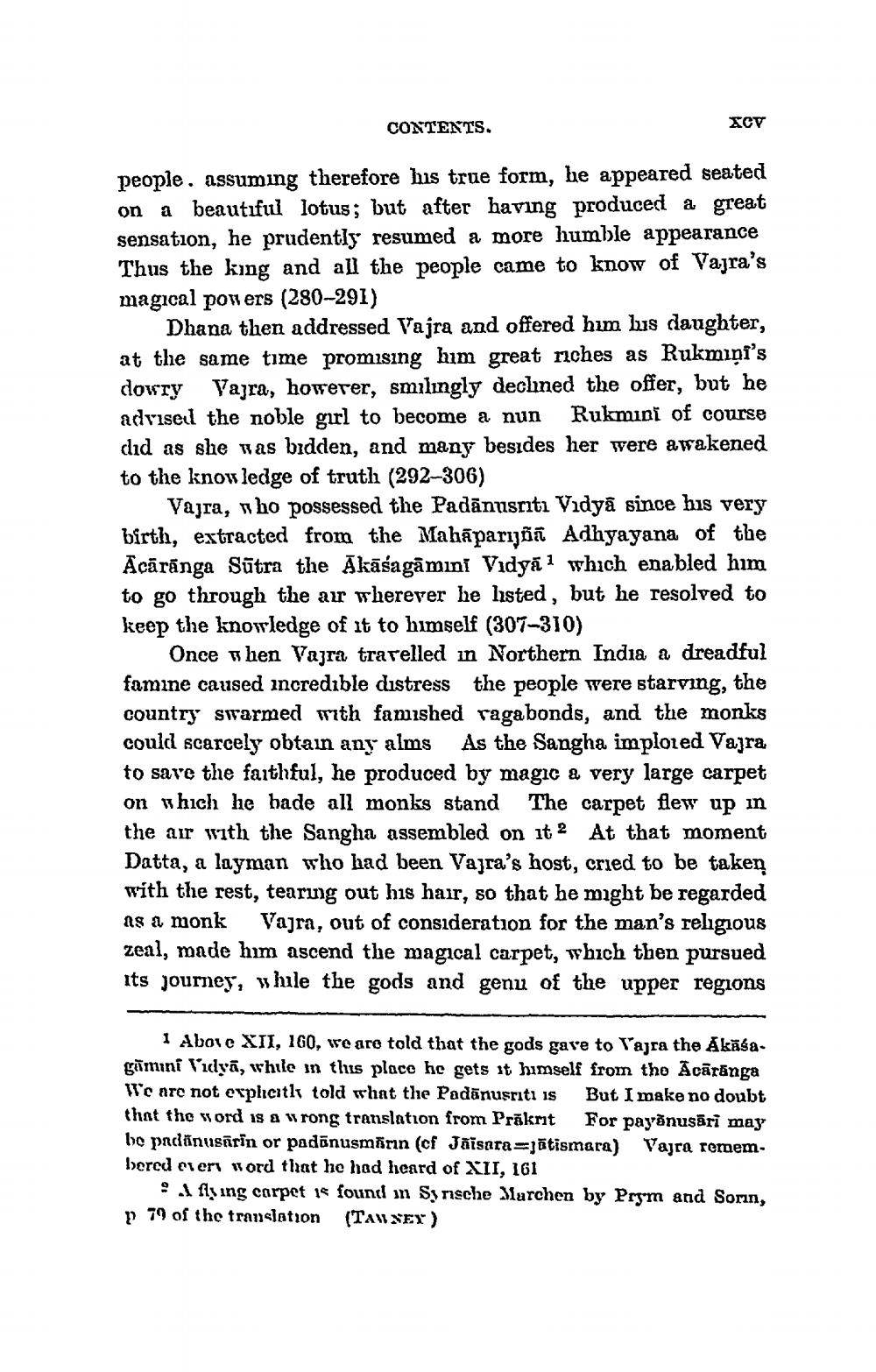________________
CONTENTS
XCV
people, assuming therefore his true form, he appeared seated on a beautiful lotus; but after having produced a great sensation, he prudently resumed a more humble appearance Thus the king and all the people came to know of Vajra's magical powers (280-291)
Dhana then addressed Vajra and offered him lus daughter, at the same time promising him great riches as Rukmipi's dowry Vajra, hoverer, smilingly declined the offer, but he advised the noble girl to become a nun Rukmini of course did as she was bidden, and many besides her were awakened to the knowledge of truth (292-306)
Vajra, who possessed the Padānusrıtı Vidyā since his very birth, extracted from the Mahāparijón Adhyayana of the Acārānga Sūtra the Økāsagāmini Vidyā 1 which enabled him to go through the air wherever he listed, but he resolved to keep the knowledge of it to himself (307-310)
Once when Vajra trarelled in Northern India a dreadful famine caused incredible distress the people were starving, the country swarmed with famıshed ragabonds, and the monks could scarcely obtain any alms As the Sangha implored Vajra to save the faithful, he produced by magic a very large carpet on which he hade all monks stand The carpet flew up in the air with the Sangha assembled on it 2 At that moment Datta, a layman who had been Vajra's host, cried to be taken with the rest, tearing out his hair, so that he might be regarded as a monk Vajra, out of consideration for the man's religious zeal, made him ascend the magical carpet, which then pursued its journey, while the gods and genu of the upper regions
1 Above XII, 160, we are told that the gods gave to Vajra the Akāśa. gümini Vidyā, while in this place he gets it himself from tho Acāranga We are not explicitl told that the Padūnusriti is But I make no doubt that the word is a wrong translation from Prākrt For payānusāri may be padinusārin or padūnusmrin (cf Jāisara=jātismara) Vajra remem. bered every word that he had heard of XII, 161
: 1 flying carpet is found in Syrische Marchen by Prym and Sorin, p 79 of the translation (TAU XEY)




